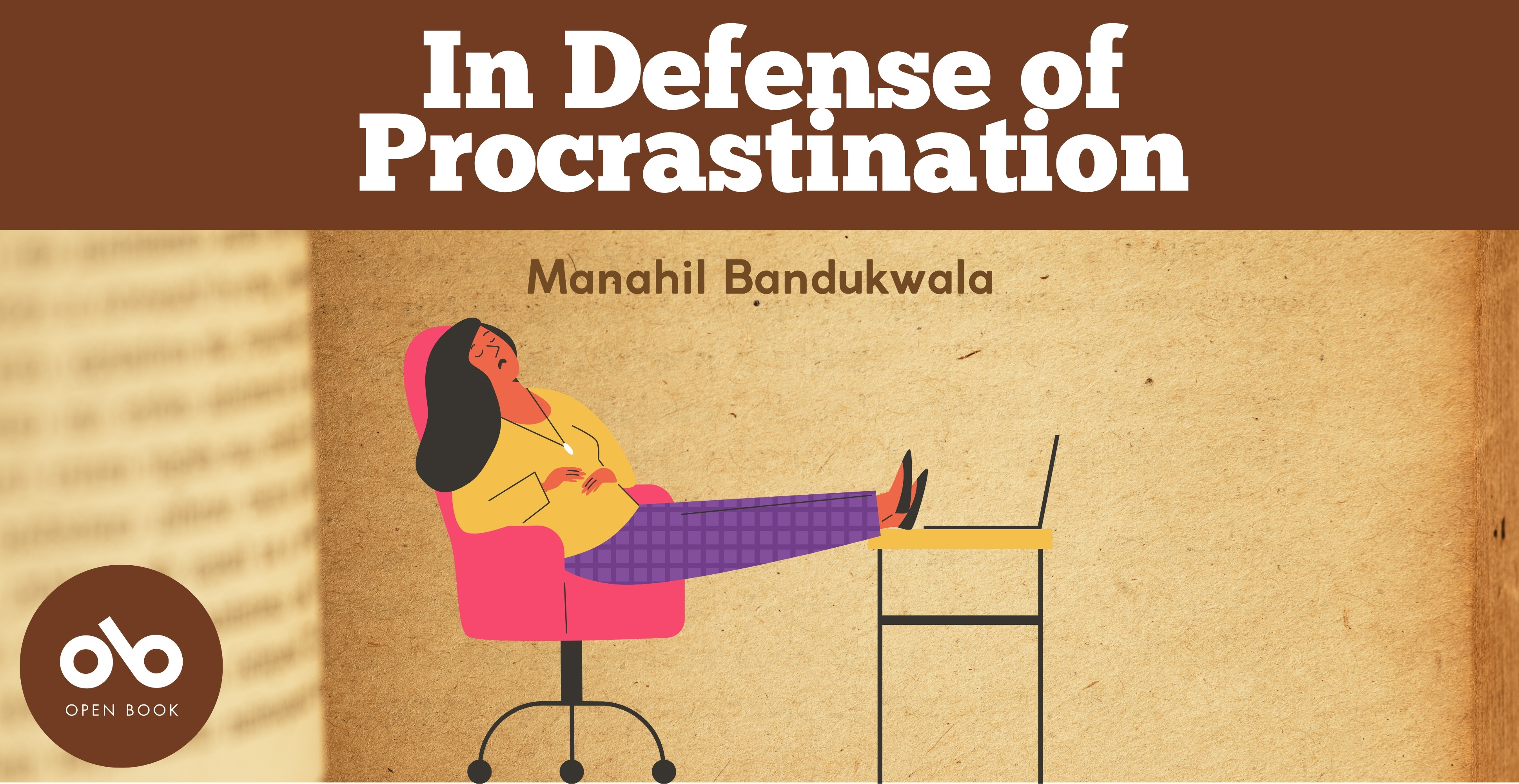In Defense of Procrastination
By Manahil Bandukwala
The procrastinating author is a time-honoured trope. For me personally, I’m at my most productive with other tasks (vacuuming, crocheting, washing dishes, doing laundry, clearing up clutter) when I feel like I should be writing. With current manuscript, which I have procrastinated lots, I’ve reached a second self-defined draft. I know what the third draft needs, but it’s been a good two months since I’ve sat down to seriously edit.
While there are writers working on publisher deadlines, for a lot of us, our writing is on our own timeline. We work writing into our schedules, personal lives, and day jobs. As a remote worker with a flexible schedule, and as someone with no children, creating a writing schedule should be no problem at all. Busier people have done it. There are many strategies for carving out time in a packed schedule to keep a manuscript moving forward. I change up my environment by going to coffee shops or writing outside. I co-write and co-work with friends. I even made it a third of the way into a novel by writing 1000 words a day. A vacation interrupted the flow, but these diligent methods do work.
However, the poet in me does believe in bursts of inspiration where lots of writing happens, and that these moments can’t be forced. So, the two or three months that pass with little writing are balanced by intense spurts of anti-procrastination. Or, more accurately, spurts where I procrastinate other tasks in favour of writing. The good news is that when the writing bug bites, it stays for as long I need to complete a small-term goal.
My cumulative writing output is positive. Whether grant- or self-curated, I meet the long-term deadlines I set for myself. My goal was to complete the second draft of my manuscript by the middle of 2025. I did accomplish that, though I did most of my rewriting and revising in a two-week period. When I think about the future of my “writing career,” I often think about the sustainability of this kind of writing practice.
But there’s also the question of what I want my writing to be and do. The writing I’ve done in periods of inspiration often feels more inspired to me as a reader of my own work. There’s a spontaneity present in the voice that doesn’t seem to appear in what I write when I’m sitting down with a diligent practice. I’ve had story ideas dissolve because I tried to write said story out when I was I “procrastination mode.”
Your CanLit News
Subscribe to Open Book’s newsletter to get local book events, literary content, writing tips, and more in your inbox
Just like it’s important to share writing tips and strategies, I find it’s equally necessary to be forthcoming about the fallow periods of writing. The “last modified” date on a manuscript document can be a source of guilt, especially as more time passes. not writing for a stretch of time doesn’t mean I have to start frantically searching ways to overcome writer’s block. I know the abundance of writing support will be waiting for me when I’m ready to return.
The views expressed by Open Book columnists are those held by the authors and do not necessarily reflect the views of Open Book.
Manahil Bandukwala is a multidisciplinary artist and writer. She is the author of Women Wide Awake (Mawenzi House, 2023) and Monument (Brick Books, 2022; shortlisted for the Gerald Lampert Memorial Award), and numerous chapbooks. In 2023, she was selected as a Writer's Trust Rising Star. See her work at manahilbandukwala.com.




